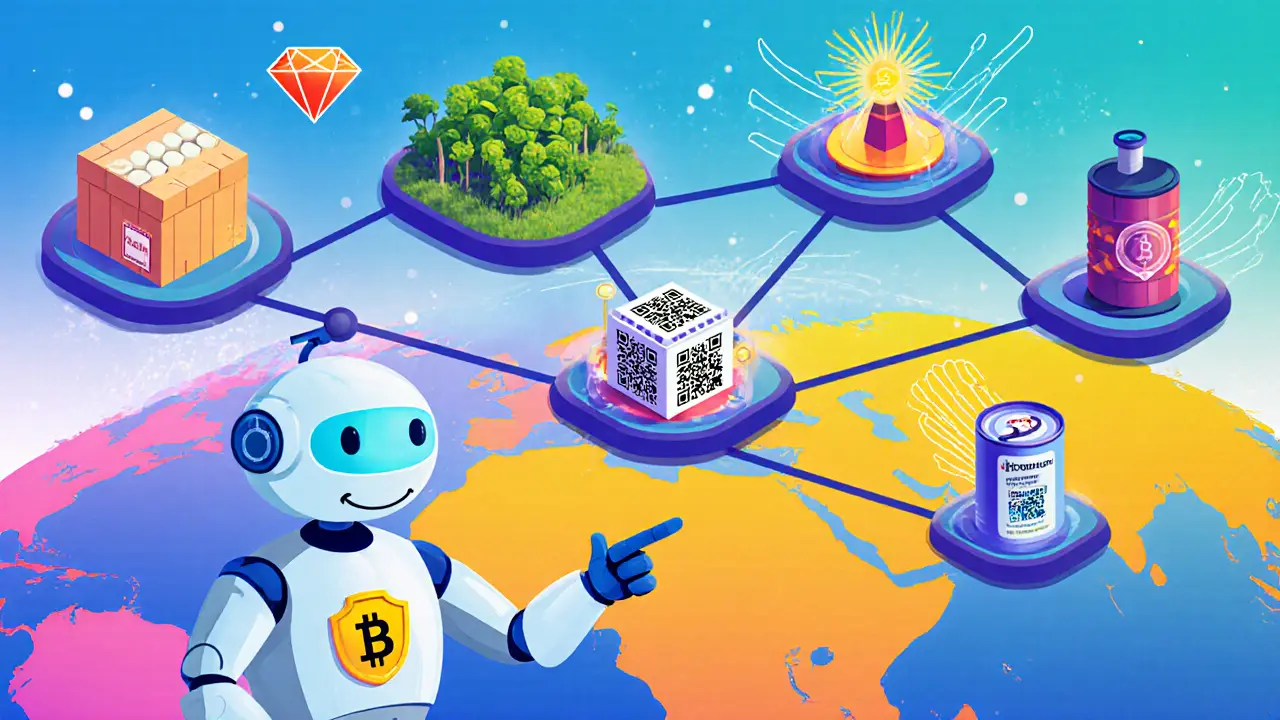When working with Supply Chain, the network of steps that moves a product from raw material to the customer’s hands. Also known as value chain, it depends on coordination between producers, shippers, and retailers. The real game‑changer today is blockchain supply chain. By adding a digital ledger, companies lock data in a way that’s hard to alter, giving everyone a single source of truth.
Enter Blockchain, a decentralized, tamper‑proof record system that stores transactions across many computers. It isn’t just for crypto; it can stamp every hand‑off in a supply chain, creating an immutable audit trail. When a farmer records a harvest, a processor logs a transformation, and a distributor scans a barcode, each step becomes part of the same chain. This transparency cuts fraud, speeds recalls, and builds trust with end users.
Next up are Smart Contracts, self‑executing agreements that trigger actions when predefined conditions are met. Imagine a contract that releases payment the moment a sensor confirms a shipment arrived at the right temperature. No manual paperwork, no delays. For supply chain managers, that means fewer disputes and faster cash flow. Smart contracts also enforce compliance automatically, so regulators can verify that rules were followed without digging through piles of documents.
One of the biggest pain points is Traceability, the ability to track a product’s origin, journey, and status at any point. With blockchain, every scan, test, or hand‑off is recorded permanently. Think of a pharmaceutical company that can prove a vaccine stayed within the cold chain from factory to clinic. If a batch shows a temperature breach, the ledger pinpoints exactly where it happened, saving lives and money. Traceability also appeals to conscious consumers who want proof that their coffee beans are ethically sourced.
All of this rests on efficient Logistics, the planning, execution, and control of product movement and storage. Blockchain adds real‑time visibility to shipping routes, container conditions, and driver performance. A carrier can share proof of delivery instantly, eliminating the need for paper bills of lading. When logistics data is reliable, inventory planners can reduce safety stock, lower warehousing costs, and respond faster to market shifts.
Supply Chain encompasses logistics, traceability, and smart contracts. It requires blockchain to create an immutable record, and blockchain influences traceability by providing transparent data. Smart contracts automate payments, while logistics benefits from real‑time visibility. Together, these entities form a powerful ecosystem that reduces risk, cuts costs, and improves customer confidence. Below you’ll find a curated list of articles that dive into real‑world examples—from vaccine cold‑chain monitoring to diamond provenance—plus step‑by‑step guides on implementing these technologies. Ready to see how the pieces fit together? Keep scrolling to explore the detailed use cases and practical tips that can help you upgrade your own supply chain operations.

Explore real-world blockchain supply chain use cases-from vaccine cold‑chain monitoring to diamond provenance-plus benefits, implementation steps, and future trends.